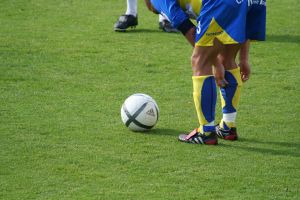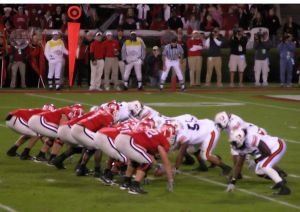An understanding of one's own habitual style and quality of play grounds a person's familiar project of playing. A characteristic style of play is based upon a player's particular talents and predilections for playing the game. It consists of a personal repertoire of bodily skills, postures and movements. Familiar play brings satisfaction, relaxation and pleasure. People routinely play in their own characteristic style, since it makes the best use of their talents. This familiar, routine style constitutes a pre-thematic understanding of what they expect from playing. It establishes the limits of what they consider themselves capable of achieving and allows them to anticipate how skillfully they will play. Based on this, they expect to play as they are accustomed: some bodily skills, play-movements, and actions are performed successfully while others, understood as being too difficult, are not. Based upon their own history, they know the relative probability of being able to play to their own satisfaction.
My doctoral research investigated the phenomenon of being in the zone as it emerged during competitive play by Olympic, professional, and amateur athletes. The essential value of this study lies in the uncovering of aspects of the phenomenon that have been previously obscured so that it more fully emerges.
Being in the zone is not a moment of tremendous effort that is later judged to be superlative; it is just the opposite. It is a relatively effortless excelling that can be recognized and enjoyed as it is happening. In contrast, we can have many successes without being in the zone. Sometimes our efforts can be lived through stressfully. If our efforts to fulfill a stressful project are eventually successful, we experience relief. However, when the process of meeting a challenge can be enjoyed, we experience exhilaration.
This research explores the dynamic inter-penetration between the psychological and physical constituents of complex, higher-order performance. There is nothing as demanding as performing under pressure in a real-time competitive or evaluative situation.
My current studies investigate the role of sensorial development in the transcendence of neuro-muscular and cognitive thresholds. Future projects will examine the promotion of signal detection, signal identification, arousal, attention, concentration, and electrophysiogical activity during competitive situations.

"I was completely dominant...there was nobody except for the one Russian that was even close. All my other competitions I've always had at least 1 or 2 close matches. I mean I was dominant. My first match I gave up only one point. One point. In fact, if you go back and look at the score of that match, the officials do not even know why they gave him that point. When I was on the mat I did not see or hear anything other than my opponent."
Olympic Gold Medalist, excerpt from Schlaudecker (2002) An Empirical Existential-Phenomenological Investigation into the World of Play: the Phenomenon of Being in the Zone While Playing Sports




